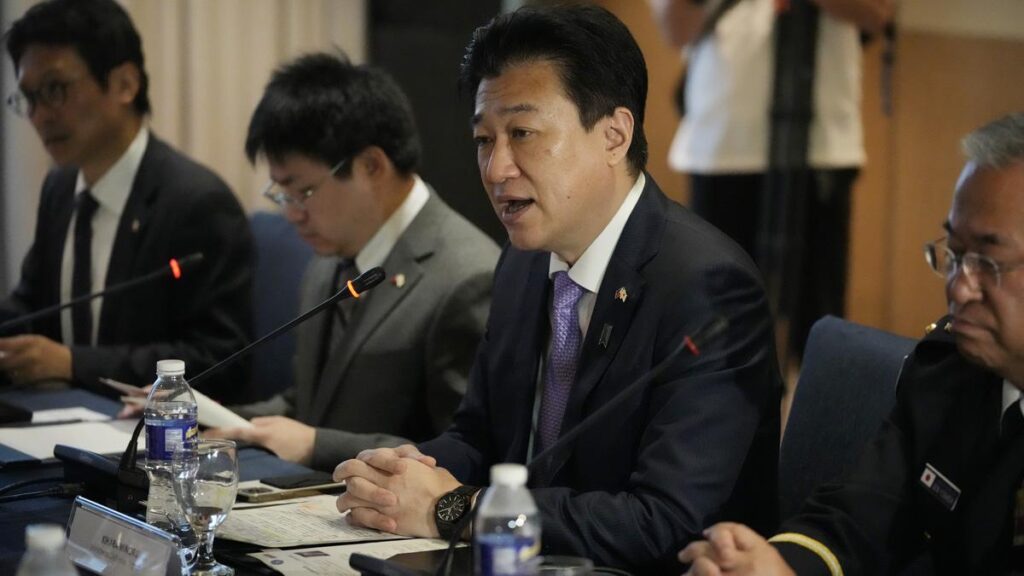As tensions in the Asia-Pacific region continue to rise due to China’s assertive actions, Japan and the Philippines have come together to initiate discussions on two defense agreements. This move signifies a joint effort to enhance security cooperation in the face of mounting challenges, and underscores the importance of strategic partnerships in maintaining peace and stability in the region.
Strengthening Defense cooperation between Japan and the Philippines
Japan and the Philippines are set to engage in discussions regarding two defense pacts as a strategic response to China’s increasing assertiveness in the region. The two agreements aim to strengthen defense cooperation and enhance security ties between the two nations.
Amid growing concerns over China’s maritime activities and territorial claims in the South China Sea, the new defense pacts between Japan and the Philippines will focus on joint military exercises, intelligence sharing, and arms procurement. This move underscores the commitment of both countries to maintain stability and security in the Indo-Pacific region in the face of growing challenges.
Countering China’s Aggression in the South China Sea
Japan and the Philippines are set to embark on discussions regarding two defense pacts as a strategic move to counter China’s increasing aggression in the South china Sea. The two countries aim to strengthen their defense cooperation in the face of growing tensions in the region.
The proposed defense agreements include a visiting forces agreement, which would allow for joint military exercises and training between Japanese and Filipino forces. Additionally, the two nations are looking into a status of forces agreement, which would outline the rights and responsibilities of military personnel deployed in each other’s territories. These pacts are seen as vital steps in ensuring regional security and stability amidst China’s assertive actions in the South China Sea.
Enhancing Maritime Security in the Indo-Pacific Region
Japan and the Philippines have announced plans to initiate discussions on two crucial defense agreements aimed at bolstering maritime security in the Indo-Pacific region. This move comes in response to China’s escalating aggression in the disputed waters of the South China Sea. The proposed pacts between Japan and the Philippines include a mutual logistics support agreement and a visiting forces agreement, both of which are designed to enhance cooperation and coordination between the two nations in the face of growing security challenges.
by forging closer ties in the realm of defense, Japan and the Philippines seek to demonstrate a united front against China’s assertive actions in the Indo-Pacific region.The mutual logistics support agreement will enable the two countries to provide each other with vital logistical assistance, while the visiting forces agreement will facilitate joint military exercises and operations. This collaboration is a strategic step towards ensuring stability and security in the region, as well as safeguarding the freedom of navigation and upholding the rule of law in international waters.
Collaborative Strategies for Ensuring Regional Stability
Japan and the Philippines have recently announced plans to start talks on two crucial defense pacts as a response to China’s increasing aggression in the region. These collaborative strategies aim to ensure regional stability and security in the face of growing tensions.
The two defense pacts that are set to be discussed include the Acquisition and Cross-Servicing Agreement (ACSA) and the visiting Forces Agreement (VFA), both of which play meaningful roles in enhancing military cooperation and interoperability between the two nations. By strengthening their defense ties thru these agreements, Japan and the Philippines are taking proactive steps to counter China’s assertiveness in the region.
The Way Forward
As japan and the Philippines embark on discussions to strengthen their defense cooperation in response to China’s increasing assertiveness in the region, the future of security in the Asia-Pacific hangs in the balance. These talks mark a significant step towards ensuring peace and stability in the face of growing challenges. As the two nations navigate this complex geopolitical landscape, the world watches with bated breath to see how this partnership will shape the future of the region. Only time will tell what the outcome of these discussions will be, but one thing is certain – cooperation and unity will be crucial in safeguarding the interests and security of the countries involved. Stay tuned for updates on this developing story.
